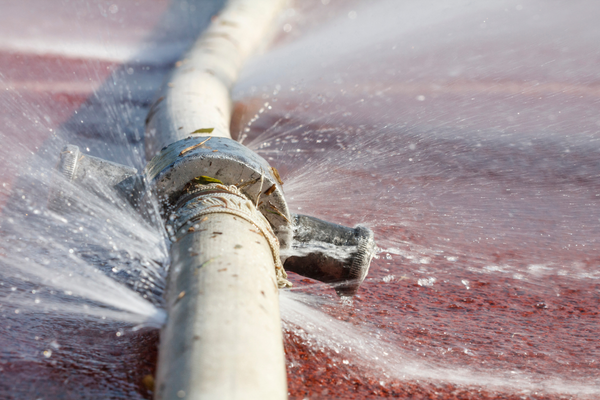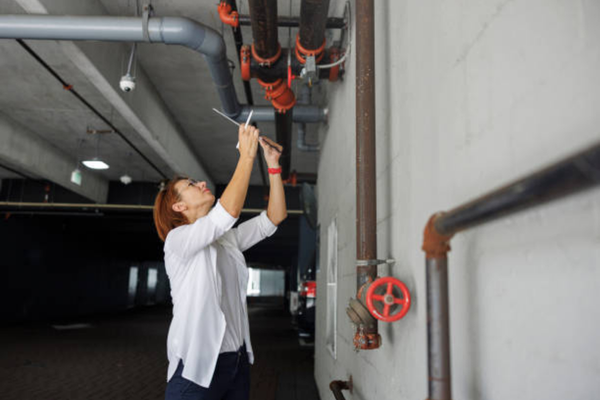Water damage can be a nightmare for homeowners because of the aftermath, like repairs and other stresses. Insurance is important to most individuals in providing financial relief for these unplanned damages. But sometimes, it gets confusing and frustrating when a water damage claim is denied. Understanding how a water damage claim may be denied can create some awareness among the homeowners to prevent such incidents, avoid costly expenses out of pocket, and ensure that they are well prepared in case an issue arises.
The article will explain the key factors that may result in the denial of a claim and allow the reader to understand how insurance policies work, avoid common mistakes, and become informed on what is generally covered and what is not, as far as water damage is concerned.
Understanding Water-Damage Claims: A Brief Overview
Water damage claims are those insurance claims that a homeowner files to help finance the repair and/or restoration after some sort of water-related incident has damaged their property. These claims are an important guard in helping owners restore homes, avoiding major financial setbacks.
Water Damage Claims Explained
Not all types of water damage are automatically covered under a standard insurance policy. Most policies are designed to automatically cover sudden and accidental damage, which would include a burst pipe or damage from a heavy storm. For instance, if a washing machine hose suddenly breaks and creates serious water damage, that’s often covered because it’s classified as a sudden incident. Similarly, water damage from the storm-roads swelled with heavy rain leaking through a damaged roof-will be quite often covered.
However, many policies rule out certain types of water damage. In general, gradual problems are not covered, like the slow leaks from deteriorating pipes or seepage into the foundation over time. These are often regarded as “maintenance issues” that the homeowner is supposed to take responsibility for. In addition, many standard policies exclude both flood damage and sewer backups; full protection may involve separate flood insurance or additional riders.
Why Water Damage Claims Get Denied
Homeowners must understand why claims for water damage get denied to better equip themselves with the knowledge needed to smoothly process a claim. Listed below are common reasons claims might be denied, ranging from the nature of the damage itself to the way it gets reported and documented.
Gradual Damage vs. Sudden Damage

It is very important whether the water damage was caused by a sudden or gradual incident. Most insurance policies include sudden and accidental water damage, while damage due to a gradual problem is usually excluded. For example, if there were a pipe that burst unexpectedly, this type of water damage would be covered because it is considered sudden and unexpected. Nevertheless, if a leak occurs because of the pipes rusted or because the roofing wore out over time, it possibly can be defined as a “gradual damage denial reason” and may not be covered.
Gradual damage tends to be considered a maintenance issue, something the homeowner should have taken care of long before it ever reached the point of becoming a serious issue. Homeowners who regularly inspect the plumbing, among other common areas where water exposure is at least potentially common, will avoid problems that could be defined as gradual and thus excluded under the policy.
Lack of Maintenance
The other most common reason why a water damage claim could be denied is neglected maintenance. Insurance companies want the homeowner to do routine maintenance on their property, plumbing inspections, and roof maintenance, which most people maintain to prevent damage. Filing a claim for apparent damage from overlooked maintenance, such as an old corroded pipe or an uninspected hot water heater may result in a “maintenance and water damage claim denial.”
Performing periodic maintenance, like leak checks, roof inspections, and servicing of water heaters, will go a long way in preventing unexpected claims and possible claim denial. Keeping up these tasks sends a clear message to the insurers that homeowners are taking active care of their property and may help in case a claim ever needs to be filed.
Types of Water Damage That May Be Excluded Under Policy
What most homeowners don’t realize, even when the water damage is sudden, it’s excluded under their policies. Standard homeowner policies typically include “water damage policy exclusions” for those damages caused by flooding, sewer back-up, and mold growth. Because these issues usually fall under the exclusion, homeowners may need to buy separate flood insurance or add riders for sewer backup and mold coverage in order for them to be protected against those types of water damage.
“Typically, water exclusion clauses include floods due to external causes; sewage or water main failure/backups; tsunamis; standing or groundwater” (Investopedia, 2022).
It is also vital to revisit any exclusions in a policy and any additional coverage the client may require. For instance, if the property is in a known flood area, adding flood insurance might prevent an abrupt and unintended out-of-pocket cost due to a natural disaster or sewer overflow.
Late Notice of Water Damage
There are crucial factors that influence whether water damage claim will be accepted, one of them being timeliness. If an insurance company feels that a delay in reporting accentuated the water damage, it may deny the liability. For instance, in cases when a homeowner discovers a leak and fails to report for days, the insurer could grant an argument that the damage spread over the days and was therefore preventable. That could be a reason for denial under “timely reporting for water damage claims.”.
Homeowners will prevent possible claim issues by declaring the water damage right in that instance it has been found. By reporting it promptly, this shows the insurer that the insured is on top of it in this situation and it also helps from not having worse and more costly damage to the home.
Lack of Enough Documentation
The lack of proper documentation for a water damage claim is another clear reason why a water damage claim would be denied. In an insurance claim, as much evidence as possible should be produced in support of the claim, including photos of the damage, receipts for all emergency repairs, and written estimates for restoration. An insurance company bases its decision on all this information; sometimes they may deny the claim on the basis of “documentation for water damage claims” due to lack of enough evidence to ascertain the proper extent of the damage.
One way an owner-occupier might avoid this problem is to keep very detailed records with regards to the condition of their home and any water damage incurred. This would include dated, clear photographs taken as soon as possible after damage has been discovered, and saving receipts for any repairs or inspections. Proper documentation can significantly raise the likelihood of a successful claim.
Why Would a Water Damage Claim be Denied? Preventing Water Damage Claim Denials
Homeowners may put in some extra effort to ensure their claims are tight before filing, as it will minimize the possibility of denial. The following represents some realistic techniques for preventing the rejection of water damage claims.
Regular Maintenance
This will also prevent the occurrence of risks that may be denied in case one files a claim. It is advisable for homeowners to periodically investigate their properties for possible water hazards, which involve plumbing, roofs, and basement foundations to check for signs of leaks, cracks, or rust. The benefits of routine maintenance are that minor problems get noticed with an opportunity to improve before the problem worsens, while at the same time proving to the insurance companies that the homeowner is not negligent in causing damage.
Read and Understand Your Policy
One of the best ways to prevent a water damage claim denial is actually to read and understand your insurance policy. Most of the time, there are exclusions and limitations with regard to certain kinds of water damages. Knowledge beforehand from homeowners will enable them to make changes in their policies, if necessary, and add coverage to common exclusions such as sewer backups or flooding. Understanding the language of the policy may help set realistic expectations as to what is and is not covered.
Act Fast in Case of Water Damage
The very moment there is any water damage, immediate action needs to be taken. The longer the time period before reporting such damage, the more serious it gets because that increases the likelihood of a claim denial. To avoid this, the minute a homeowner notices water damage, they are advised to reach out immediately to their insurance company for help. Quick reporting will indicate to the insurance company that the occurrence was really unexpected, so an assessor can be on time, too. This cuts down on complications for claims.
Keep Detailed Records

Proper documentation is always important in supporting any claim for water damage. This includes periodic maintenance checks, receipts from repairs, and some photographs or videos showing the damages. Having the principal facts available can definitely assist in sustaining a claim and clearly demonstrating the level of damage. In collecting these documents and data, one is merely strengthening the argument and limiting the chances of the claim being denied due to a lack of evidence.
Check out this in-depth guide on how to document water damage.
What to Do if Your Water Damage Claim Is Denied
If a claim for water damage is denied, there are several courses of action available for a homeowner. While a denial can be irksome, a denied water damage claim need not overwhelm you. First and foremost, read the reason behind your denial.
Knowing the reasons for the denial of a claim is the first step in trying to resolve the denied claim. In most instances, an insurance company will indicate what led to the denial in policy exclusions, failure to maintain or even lack of documentation. Sometimes the state gives such reasons clearly to the insured, upon careful review for possible flaws in one’s claim and possible remedies.
Appeal The Denied Claim
An appeal may be made if the homeowner feels that the denial is not justified or is vague. By contacting the insurance company to reconsider the claim, the homeowner can further their case by adding more documentation to explain misunderstandings. Regarding the company’s appeals process, this is taken very seriously and every piece of evidence requested is given in support of a positive decision;
Professional Help from a Public Insurance Adjuster
Where a claim is complicated or large, services can be sought from a public insurance adjuster or a lawyer. Public adjusters specialize in negotiating claims with insurance on behalf of policyholders and will represent the insured skillfully in settling the claim. In many cases, legal support should also be sought when contesting a denial. This can make professional assistance in navigating the appeals process much easier to deal with and can create a higher potential for success in the outcome.
When to Hire a Water Damage Restoration Professional
In many instances, engaging the services of a professional in water damage restoration ensures smoothness and appropriateness of your claim, while complete repairs are ensured. The consulting professionals such as Tri-State Ready Restoration for professional services in water damage restoration may assist not only in the cleanup but also in documenting the damage correctly, hence making your case stronger if you would have to file a claim.
Benefits of Professional Water Damage Restoration
A restoration professional will provide detailed documentation that insurance companies depend on when assessing claims. Specialized equipment and an expert identify the scope of the damage and capture essential evidence that a homeowner may miss. This helps build a strong case that reduces the chances of claim denial, with nothing missed in the restoration process.
Also, restoration professionals take care of the cleaning and repairs in a swift and effective manner to minimize possibilities of mold or further damage worsening things. Quick, professional cleaning reduces health risks but can also demonstrate to insurers that you took immediate, responsible action in an effort to mitigate further damage-an action that strengthens your claim.
Although complicated, some of the water damage claims may involve knowing the common reasons for denial and thereby taking precautions as it saves your home and your wallet. Sometimes, regular maintenance of your property, understanding your insurance policy, promptness with which the damage is discovered, and proper documentation can be a sure-fire way to avoid claim denial.
When in doubt, seeking the expertise of New Jersey water damage restoration services like Tri-State Ready Restoration is essential. With the right support, your home can be properly restored, helping to minimize out-of-pocket expenses and preserve the value of your property.

